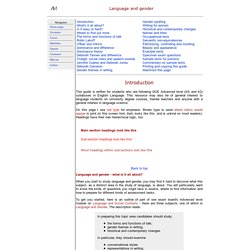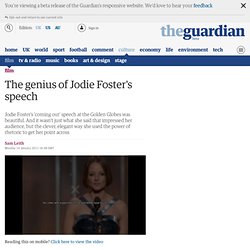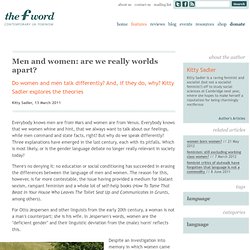

Do euphemisms soften the impact of war or mask the truth? Casualty ‘He had been trained to take out other men.

We had made sure his weaponry was smart, And softened up the enemy with carpet. Linguists reveal the 100 words that have shaped the English language. A Point of View: Roll up for the inauguration. 25 January 2013Last updated at 12:12 ET The US presidential inauguration is a unique political spectacle, says historian David Cannadine.

Whenever possible, I like to be in the United States to witness the patriotic festivities and political theatre that once again took place in Washington DC last Monday, for they are an extraordinary amalgam of national celebration and religious fervour, piety and partying, glitz and glory, showbiz and razzle-dazzle. Nowhere else in the world is there anything quite like an American presidential inauguration, and the fact they've happened once every four years for more than two and a quarter centuries is also unique. In their fundamentals, the pomp and the ceremonial are essentially unchanging, and all of them since Bill Clinton's second inaugural in 1997 have been available live on the internet, which means it's possible to follow this quintessentially American spectacle as it happens from virtually anywhere in the world. Continue reading the main story. Language and power: an empirical analysis of linguistic strategies used in superior–subordinate communication - Morand - 2000 - Journal of Organizational Behavior.
Games with Words: Overheard: Scientific Prejudice. A senior colleague recently attended an Autism conference.

Language is frequently impaired in Autism, and so many of the neuroscientists there were trying to look at the effects of their animals models of Autism on language. Language and Power in the Family.pdf (application/pdf Object) Linguistics Research Digest.
John Dunford Consulting. ENGB1 Gender. Representing gender in children's reading materials. Would a boy have been shown with flowers in the 1970s?

Are girls and boys portrayed differently in children’s reading materials today than in the past? During the 1970s and 80s, studies of children’s reading materials found that males not only featured more than females but also they tended to take the lead roles and were more active than their female counterparts, who were often restricted to traditional stereotyped roles. Many of these earlier studies of gender in children’s reading material analysed the texts based on their content, which meant that researchers made their own judgements about what was sexist and what was not. Now, however, advances in computer and electronic technology mean that ‘corpus linguistics’ can be used to analyse texts more systematically. Using this method, John Macalister set about answering the question of how far gender roles in writing for children had changed since the 1970s. Feminist Language.
Language and Gender ENGB1. Introduction This guide is written for students who are following GCE Advanced level (AS and A2) syllabuses in English Language.

This resource may also be of general interest to language students on university degree courses, trainee teachers and anyone with a general interest in language science. Jodie Foster's Golden Globe acceptance speech: full transcript. The genius of Jodie Foster's speech. Reading this on mobile?

Click here to view the video It's a considerable thing to deliver a speech that is at once artfully put together and emotionally affecting. At the Golden Globes – where in accepting the Cecil B DeMille award for lifetime achievement, she made the first public acknowledgement of her sexuality – Jodie Foster managed both. What's striking is not what the speech gave away, but the control and delicacy with which it delivered its payload. The art of rhetoric is, at root, about the relationship between a speaker and an audience. But Foster didn't just take their attention for granted. She teased their expectations. By using anaphora (1) ("we've giggled ... we've punched") and polysyndeton (2) (all those ands), she made the sentence sound loose, spontaneous, a little out of control. Writ large, that's the same technique she used when she approached the meat of her speech. She teased it out. Big, nervous laugh from the audience.
Finally her peroration (6). Men and women: are we really worlds apart? - Features. Do women and men talk differently?

And, if they do, why? Kitty Sadler explores the theories Kitty Sadler, 13 March 2011 Everybody knows men are from Mars and women are from Venus. Language Change and Child Language Acquisition. Advertising and changes in language. Lexical Change. Language and power. Language and power: an empirical analysis of linguistic strategies used in superior–subordinate communication - Morand - 2000 - Journal of Organizational Behavior. Just words: law, language, and power. Pierre Bourdieu. Pierre Bourdieu (French: [buʁdjø]; 1 August 1930 – 23 January 2002) was a French sociologist, anthropologist,[2] and philosopher.[3] Bourdieu rejected the idea of the intellectual "prophet," or the "total intellectual," as embodied by Jean-Paul Sartre.

His best known book is Distinction: A Social Critique of the Judgment of Taste (1979), in which he argues that judgments of taste are related to social position, or more precisely, are themselves acts of social positioning. His argument is put forward by an original combination of social theory and data from quantitative surveys, photographs and interviews, in an attempt to reconcile difficulties such as how to understand the subject within objective structures.
In the process, he tried to reconcile the influences of both external social structures and subjective experience on the individual (see structure and agency). Life and career[edit] Bourdieu was educated at the lycée in Pau before moving to the Lycée Louis-le-Grand in Paris. Language and power. Language in Social Life is a major series which highlights the importance of language to an understanding of issues of social and professional concern.

It will be of practical relevance to all those wanting to understand how the ways we communicate both influence and are influenced by the structures and forces of contemporary social institutions. Language and Power was first published in 1989 and quickly established itself as a ground-breaking book. Its popularity continues as an accessible introductory text to the field of Discourse Analysis, focusing on: how language functions in maintaining and changing power relations in modern society the ways of analysing language which can reveal these processes how people can become more conscious of them, and more able to resist and change them. Language and power. Language and power: an empirical analysis of linguistic strategies used in superior–subordinate communication - Morand - 2000 - Journal of Organizational Behavior.
Language, Ideology and Power Group - Department of Linguistics and Modern English Language at Lancaster University. Our long-standing Language, Ideology and Power Research Group (often abbreviated as LIP) attracts an interdisciplinary and international membership of scholars who share an interest in the empirical and theoretical investigation of language in context.

Our interests cover a wide range of perspectives on the relationship between discourse and identity, knowledge, power, governance, politics, economics, institutions, and cultural formations. The group was first set up by Norman Fairclough and continues today under the direction of Ruth Wodak. We regularly invite international guest speakers from a wide range of disciplinary backgrounds. We maintain close connections with other departments in Lancaster University, including the Management School, Sociology, Politics, Philosophy and Religion, and Educational Research. Meetings We generally have weekly meetings during term time, for details see the current schedule. Membership Coordinators & Contact Ruth Wodak Sten Hansson. Ideology and Symbolic power: Between Althusser and Bourdieu.
Western Marxism has often laid considerable stress upon the ideology of modern capitalist societies. This focus upon ideology stems from the failure of proletarian revolution to have either occurred, or establish socialism within Western Europe. The exact nature and function of ideology became paramount in Marxian explanations of the continued stability of Western capitalism after the Great War and Great Depression. Ralph Fiennes blames Twitter for 'eroding' language. "I hear it, too, from people at drama schools, who say the younger intake find the density of a Shakespeare text a challenge in a way that, perhaps, (students) a few generations ago maybe wouldn't have. " He said: "I think we're living in a time when our ears are attuned to a flattened and truncated sense of our English language, so this always begs the question, is Shakespeare relevant?
But I love this language we have and what it can do, and aside from that I think the themes in his plays are always relevant. " Fiennes, who does not use Twitter, is not alone in his theory. JP Davidson, the author of Planet Word and a linguistic expert, talked this week about longer words dying out in favour of shortened text message-style terms. Teen slang: What's, like, so wrong with like? 28 September 2010Last updated at 15:50 By Denise Winterman BBC News Magazine Teenage slang - do I not like that? Actress Emma Thompson says young people make themselves sound stupid by speaking slang outside of school. But while the use of the word "like" might annoy her, it fulfils a useful role in everyday speech. "That's, like, so unfair. " One response to Emma Thompson's comments likely to trigger a rush of steam from her ears.
The Oscar winner has spoken out against the use of sloppy language. But is peppering one's sentences with "like" such a heinous crime against the English tongue? Language experts are more understanding of teen culture than Thompson, pointing out the word's many uses. But fillers are a way we all stall for time when speaking and historically always have. "It is not a lazy use of language, that is a common fallacy among non-linguists," he says. "We have always used words to plug gaps or make sentences run smoothly. Thompson just isn't part of the "like" club. Use It or Lose It: Why Language Changes over Time. The words used the most in everyday language are the ones evolving at the slowest rate, say two new studies published in Nature.
In one paper, researchers at Harvard University focused on the evolution of English verb conjugations over a 1,200-year period. In a separate study, a team at the University of Reading in England reviewed cognates (similar sounding words in different languages for the same object or meaning, such as "water" and the German "wasser") to determine how all Indo-European tongues progressed from a common ancestor that existed between 6,000 and 10,000 years ago. "What our frequency effect allows us to do is identify…ultraconserved linguistic elements," says Mark Pagel, an evolutionary biology professor at Reading, about his research. "Namely, they're the words we use all the time.
"